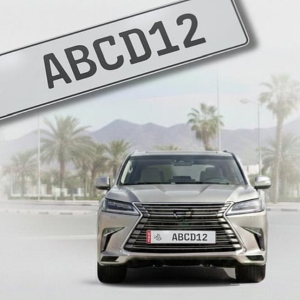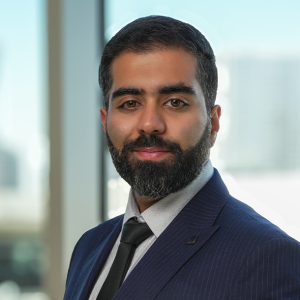Moving to a new country can be overwhelming, and one of the most important steps in settling down is open a bank account. For expats in Dubai, the process might feel intimidating at first—but it doesn’t have to be. With the right guidance and understanding of how the system works, you’ll find that opening a bank account in Dubai can be both smooth and empowering. Whether you’ve moved for work, business, or a new beginning, having a local account is essential for managing your finances and integrating into life in the UAE.
Why You Need a Bank Account in Dubai
From receiving your salary and paying rent to setting up utilities or simply shopping online, a local bank account makes life significantly easier. While you can use an international card for a short while, most employers and landlords will expect you to have a UAE-based account.

Plus, you’ll benefit from better exchange rates, lower withdrawal fees, and convenient online banking options tailored to residents. Not to mention, having a bank account helps build your financial credibility in the UAE, which could come in handy if you ever apply for a credit card or personal loan in the future.
What Types of Bank Accounts Are Available to Expats?

As an expat, you typically have access to two main types of accounts:
Current Account – Ideal for everyday use like salary deposits, bills, and purchases. These usually come with a debit card, cheque book, and mobile banking features.
Savings Account – Perfect if you want to earn interest on your balance. It may have certain restrictions on withdrawals but can be a great tool for budgeting and planning.
Many banks also offer Islamic banking options, which operate under Sharia-compliant financial principles. You can choose one that suits your lifestyle and preferences.

Documents You’ll Need
Though the process is quite straightforward, preparation is key. Here’s a general list of documents most banks will ask for:
- Valid passport with a residency visa (some allow account opening on a tourist visa, but it’s limited)
- Emirates ID or the application form showing your ID is under process
- Salary certificate or employment contract
- Proof of address, such as a tenancy contract or utility bill
- A no-objection letter (NOC) from your employer in some cases
- Recent passport-sized photos
Depending on the bank and type of account, they may ask for additional documents. It’s always best to call ahead and check.

Can You Open an Account Before Getting Your Emirates ID?
Some banks in Dubai have started offering expat-friendly options where you can open a basic account even while your residency visa and Emirates ID are still under process. These are known as “non-resident” or “basic” accounts and come with limited services, such as lower transaction limits or no cheque book. Once your documents are complete, you can upgrade the account with ease.
Best Banks in Dubai for Expats
Dubai is home to a mix of local and international banks. Here are some you’ll commonly come across:
- Emirates NBD
- Mashreq Bank
- First Abu Dhabi Bank (FAB)
- HSBC
- Standard Chartered
- RAKBANK
- ADCB
Each of these has its strengths—some focus on digital convenience, others on competitive savings rates or premium banking services. If you’re working for a large company, chances are they’ll already have a preferred banking partner, which might make the process faster.
Steps to Open Your Bank Account in Dubai
- Choose Your Bank and Account Type
Research online or visit a branch to understand what suits you best. Consider fees, branch locations, mobile app reviews, and international transfer options. - Gather All Required Documents
Have everything in hand to avoid delays. Make photocopies and keep digital versions handy. - Visit a Branch or Apply Online
Some banks allow online applications or pre-approvals, but visiting a branch in person is often faster. Bank executives will guide you through the form-filling process. - Complete KYC and Verification
Banks will conduct a short interview or ask additional questions to meet Know Your Customer (KYC) guidelines. This step ensures your account is secure and compliant with local regulations. - Receive Your Debit Card and Cheque Book
Once approved, you’ll get your debit card either instantly at the branch or delivered within a few days. You can also request cheque books if your account allows it. - Activate Online Banking
Download the bank’s mobile app, register your details, and you’re ready to go. Most banks now offer highly functional apps for easy transfers, bill payments, and real-time balance tracking.

Can Freelancers or Self-Employed Expats Open Accounts?
Yes, but the process is slightly more complicated. If you are self-employed or freelancing, you’ll need to show trade licenses, proof of income, and sometimes even bank statements from your home country. In some cases, having a free zone company or a freelance permit makes the process much easier. Several banks have started supporting freelance accounts due to the growing gig economy in Dubai.
What About Offshore or Multi-Currency Accounts?
For expats dealing with multiple currencies or frequent international transfers, some banks offer multi-currency or offshore accounts. These are especially useful for digital nomads, consultants, or those receiving money in different currencies. Fees might be slightly higher, but the convenience and flexibility can be worth it.
Things to Keep in Mind Before You Apply
- Minimum Salary Requirements: Some accounts require a minimum monthly salary, usually between AED 3,000 to AED 10,000. Always ask in advance.
- Minimum Balance Fees: Be cautious of accounts that charge penalties if your balance falls below a set amount.
- ATM and Transfer Fees: Understand how much you’ll be charged for using ATMs, especially if you travel outside the UAE often.
- Customer Service and Language: Choose a bank that offers strong customer support, preferably with English-speaking staff and a well-rated mobile app.
Opening a Joint Account in Dubai
If you’ve moved with a partner or family member, you can explore joint accounts. These work well for shared expenses like rent, groceries, and bills. However, both parties will need to be legal residents and provide complete documentation. Not all banks offer this service, so it’s worth confirming ahead.

How Long Does It Take to Open a Bank Account?
In many cases, your account can be opened within one to two working days once your documents are in order. Some banks even issue debit cards on the same day. If your residency visa or Emirates ID is still pending, the process may take slightly longer or be limited to basic account features.
Life After You Open Your Account
Once your account is active, managing finances becomes much easier. You can automate salary transfers, set up standing instructions for bills, transfer funds internationally, or even invest through your bank. Many banks also offer reward programs, discounts, and loyalty points for debit card usage, so you can enjoy additional perks along the way.

Closing Thoughts: It’s Easier Than You Think
Opening a bank account in Dubai as an expat isn’t just a necessity—it’s your first step into building financial stability in your new home. The system is designed to be efficient, and most banks are used to dealing with expats daily. While the paperwork might seem heavy at first, it’s a one-time process that opens the door to a more comfortable and convenient life in the UAE.
With your documents in place, a bit of research, and the right mindset, you can confidently walk into any bank and start your journey toward financial independence in Dubai. Whether you’re here for a short stint or planning to stay long-term, your bank account will be the foundation for everything that follows—from renting your dream apartment to saving for future goals.
So take that first step. Dubai’s banking world is ready to welcome you.
Do follow UAE Stories on Instagram













